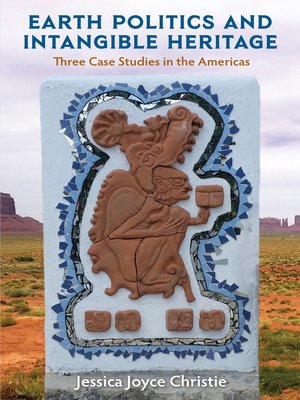Earth Politics and Intangible Heritage
ebook ∣ Three Case Studies in the Americas · Cultural Heritage Studies
By Jessica Joyce Christie

Sign up to save your library
With an OverDrive account, you can save your favorite libraries for at-a-glance information about availability. Find out more about OverDrive accounts.
Find this title in Libby, the library reading app by OverDrive.



Search for a digital library with this title
Title found at these libraries:
| Library Name | Distance |
|---|---|
| Loading... |
Focusing on three communities in North, Central, and South America, Earth Politics and Intangible Heritage layers archaeological research with local knowledge in its interpretations of these cultural landscapes. Using the perspective of Earth Politics, Christie demonstrates a way of reconciling the tension between Western scientific approaches to history and the more intangible heritage derived from Indigenous oral narratives and social memories.
Jessica Christie presents case studies from Canyon de Chelly National Monument on the Navajo Reservation in Arizona, United States; the Yucatec Maya village of Coba in Quintana Roo, Mexico; and the Aymara town of Copacabana on Lake Titicaca, Bolivia. Each of these places is home to a longstanding community located near ancient archaeological sites, and in each case residents relate to the ruins and the land in ways that anchor their histories, memories, identities, and daily lives. Christie's dual approach shows how these ancestral groups have confronted colonial power structures over time, as well as how the Christian religion has impacted traditional lifeways at each site.
Based on extensive field experiences, Christie's discussions offer productive strategies for scientific and Indigenous wisdoms to work in parallel directions rather than in conflict. The insights in this book will serve as building blocks for shaping a regenerative future—not only for these important heritage sites but also for many others across the globe.
A volume in the series Cultural Heritage Studies, edited by Paul A. Shackel







